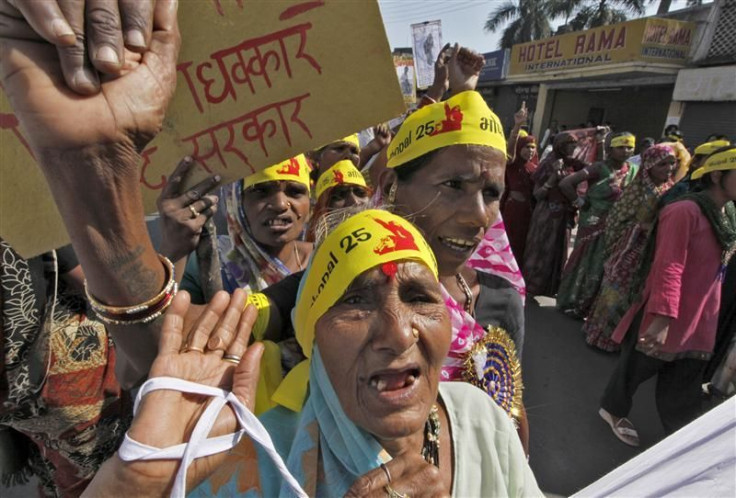Indian Activists Urge London Olympics Boycott, Demand Bhopal Tragedy Reparations

Indian activists are encouraging a boycott of the 2012 London Summer Olympics to draw attention to a 1984 tragedy that killed thousands and injured many more in the town of Bhopal.
Though the 2012 Olympic Games are thousands of miles away and decades removed from the toxic chemical leak that devastated a community, Indian protesters hope that they can use the high-profile event to generate awareness and ultimately secure much-needed reparations for the still-suffering victims.
It was during the early morning hours of Dec. 3, 1984 that a Union Carbide India Limited (UCIL) plant in Bhopal began leaking a toxic gas called methyl isocyanate. A cloud of the toxic fumes blanketed the surrounding area, doing the most damage in a densely-populated slum bordering the facility.
The Madhya Pradesh government reports that approximately 3,800 people died over the next three days, but the BBC notes that some estimates put the death toll closer to 8,000. In addition, hundreds of thousands of Bhopal residents lost friends and family members, or were themselves injured, or still suffer from permanent disabilities.
An affidavit released by the Indian government stated that the leak caused more than half a million injuries, including about 3,900 severely and permanently disabling injuries.
Following the tragedy, UCIL immediately acted to provide relief funds and assistance to the Indian government, according to the Union Carbide Corp. Bhopal Information Center. This was followed by a $470 million damage settlement, the largest ever agreed upon in India. UCIL paid the settlement within 10 days of the court's decision.
Survivors of the tragedy, however, say that the reparations were insufficient. The BBC reports that the families of those who died received a total of $2,000 on average. Those with injuries got about $800.
The people of Bhopal are still suffering the consequences of the UCIL chemical leak, but the funds they were awarded ran out many years ago.
Now, UCIL no longer exists under the same ownership. The company became a wholly owned subsidiary of the U.S.-based Dow Chemical Co. in 2001.
Although Dow is not directly responsible for the Bhopal tragedy, activists are now publicly targeting the giant corporation. They demand a new round of reparations from Dow, which they argue assumed responsibility by purchasing UCIL.
Since Dow has signed a deal to sponsor the Olympics and provide plastic paneling for the outside of the stadium in London, the activists have turned their attention to the games themselves.
The Olympics make for a high-profile target, and activists in Bhopal have called for the Indian government to boycott the games altogether. In terms of raising awareness, their efforts were partially successful; in March, the Indian Olympic Association (IOA) demanded that the International Olympic Committee (IOC) terminate its deal with Dow.
The controversy was even addressed by British Prime Minister David Cameron, who said on a CNN-IBN news program that he would be very sad if India boycotted the games.
That's as far as it went, though. The IOC apparently has no intention of breaking its deal with Dow, and there was never a formal threat of boycott from the IOA or the Indian government.
Some activists are now urging Indian athletes themselves not to participate in the games, which is proving to be a tough sell for determined competitors who have been training for years.
Still, Bhopal residents seem determined to keep up the fight in hopes that their renewed visibility will effect real change. The surviving victims of the 1984 tragedy say they are in need of increased reparations, and they hope their plight will not be forgotten once the games have come and gone.
© Copyright IBTimes 2024. All rights reserved.












